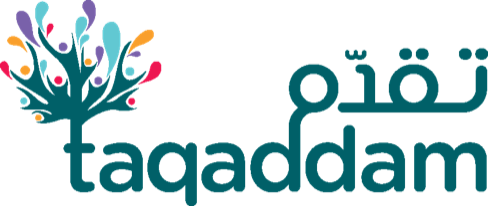Taqaddam comes to Oman
Taqaddam comes to Oman
The thing about Oman is … it is a little bit different. Lewis and Anna from the Taqaddam project team tell us why.
What is different about the Taqaddam programme in Oman?
Oman was unique for a number of reasons, the main reason being that all the students taking part in Taqaddam in its first year in Oman were enrolled at the same college studying engineering. The college, Caledonian College of Engineering in Muscat, is trialling embedding Taqaddam into its core curriculum. In place of their normal weekly skills clinics, students in the foundation years of the college are studying Taqaddam instead.
When we delivered the first workshops, many of the students had only just started at the college so they were still making new friends and many of them did not feel comfortable talking and working with each other. Many of the students are older – some are in their early twenties. This is rare as we usually work with students who are aged 15–16. A number of the young people are from rural villages outside the capital city, Muscat, where the college is situated. They board at the college campus and go home at weekends.
The teachers all work together so they know and respect one other. As a result there was a sense that Taqaddam is building unity between a team that has a pre-existing bond, rather than creating a new disparate network of teachers.
How did this change the dynamic of the teacher training and the workshops, compared to other countries you have delivered in?
The teacher training was different in that the teachers knew they could take real ownership of the programme. While most teachers are looking forward to running the programme in their schools, they can often be the only person delivering Taqaddam. As a result they have to juggle their priorities alone or with one other person. In Oman it is set up to be a joint effort, with teachers holding their own classes but with a strong peer-to-peer support system in place.
During the teacher training it was great to see the teachers asking so many questions and providing great ideas and insight into how Taqaddam could be further embedded into the school and combined with the curriculum. We felt the students would be getting a great experience but also these teachers would be able to give us great feedback on how the model works when it is fully supported in schools.
 What is different about the Taqaddam programme in Oman?
What is different about the Taqaddam programme in Oman?
The biggest challenge was the young people taking a while to open up. The boys and girls were not used to working with each another and everyone was obviously feeling a little shy. After some interactive activities they all warmed up during the session. We are looking forward to seeing the difference in student confidence during the second workshop.
What was the highlight?
Working together was great. We have been the core project team since the start of the Taqaddam programme and so we both felt comfortable adapting the content and sessions to the needs of the students more radically than in any other workshop. The British Council team were also amazing and the HSBC volunteers were engaged and eager to support. All in all, the people made the experience what it was!
About Taqaddam
Taqaddam, meaning ‘move forward’ in Arabic, aims to support young people to build confidence and develop personal skills as they leave school. The programme has been developed by and is run in partnership with HSBC and the British Council. The content for the programme has been developed by Spark+Mettle, part of the Goodall Foundation.

